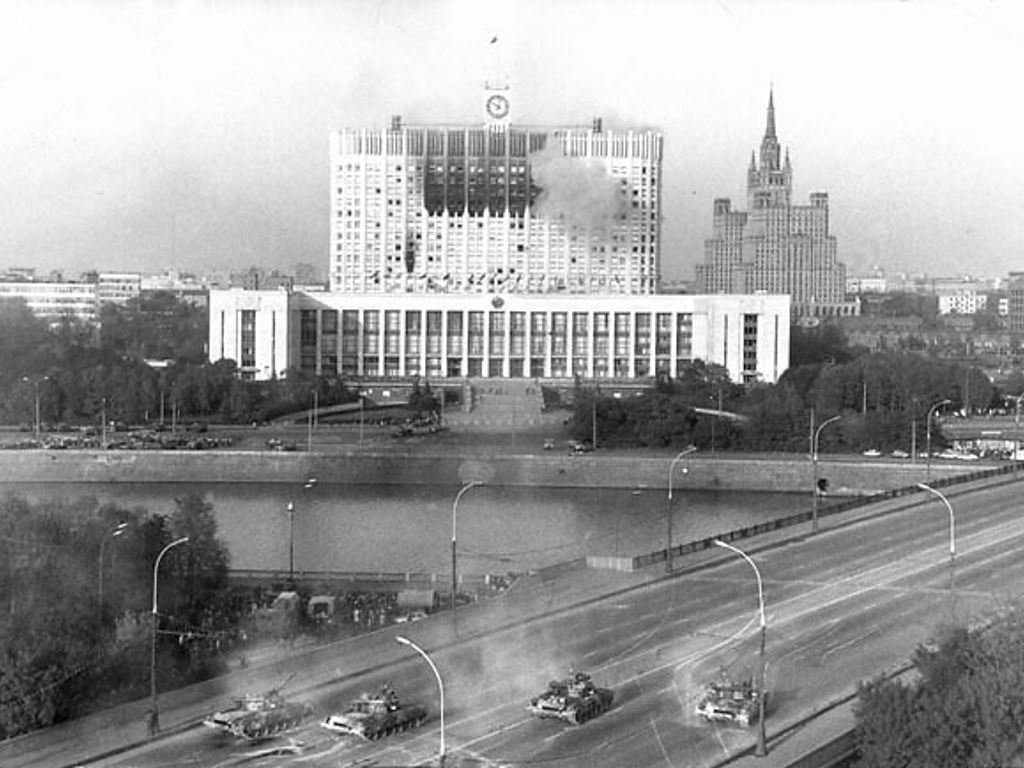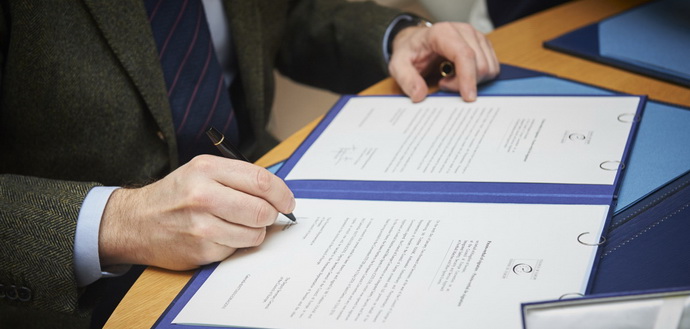Critical Analysis of the Draft Resolution Proposed by the Rules Committee
On 3 June 2019 the Rules Committee of PACE adopted by 18 to 6 with 1 abstention a Draft Resolution titled “Strengthening the decision-making process of the Parliamentary Assembly concerning credentials and voting.” It was accompanied by an Explanatory Memorandum by the Rapporteur Ms Petra De Sutter. This document substantially weakens an earlier report on the same subject by the same Rapporteur. That report had been adopted virtually unanimously by the Rules Committee on 20 September 2018[1].
The Draft Resolution is designed to satisfy the demands made by Russia as a condition for agreeing to continue its participation in the Council of Europe. At its 129th session in Helsinki, the Committee of Ministers adopted a decision that was widely interpreted as backing the Russian demands.
Paragraph 7 of the Draft Resolution proposes, among other things, to “clarify” Rule 10.1.c by providing that:
“The members’ rights to vote, to speak and to be represented in the Assembly and its bodies shall not be suspended or withdrawn in the context of a challenge to or reconsideration of credentials.”
We set forth hereafter the main criticisms to be addressed to this proposal.
I. Why is it suddenly so urgent to amend the rules on the accreditation of parliamentary delegations?
Rule 6 provides that the credentials of representatives to the Assembly must be transmitted no less than one week before the opening of a session. Observing this rule would make it impossible for the Russian delegation to participate in the election of the Secretary General later this month. To enable this participation, paragraph 7 of the Draft Resolution proposes to take into account the present “exceptional context” to allow the presentation of the credentials of the Russian delegation at the June 2019 part-session.
The Explanatory Memorandum explains that similar exceptions were made in the case of Greece (1974) and Türkiye (1984). However, in those cases, the exceptional circumstances consisted in an improvement, i.e. the return of those countries to a democratic regime. In the case of Russia, there is no improvement but, on the contrary, a substantial worsening since 2014 of the situation of democracy and human rights. [2] The present “exceptional context” is due exclusively to Russia’s refusal to pay its contribution to the budget and to send a delegation to Strasbourg as required under the Statute. [3] Russia does not propose amending its present course of conduct. There is, therefore, no reason to derogate from the provisions of Rule 6.
II. Adopting the Draft Resolution will encourage violations by others.
A general principle of good legislative practice teaches us not to change a law of general application to deal with an individual situation without having regard to possible adverse consequences in future cases.
If it gave in to the Russian demands, the Assembly’s right to ensure that national delegations abide by the core principles of the Council would be significantly restricted. This would constitute an encouragement to others to engage in similar violations in the future.
III. ‘Participation “on an equal basis” in both statutory organs’ does not require restricting the Assembly’s right to challenge/reconsider delegates’ credentials.
At its Helsinki session, the Committee of Ministers stated that all member States are “entitled to participate on an equal basis in the two statutory organs of the Council of Europe.” The Explanatory Memorandum interprets this as requiring the Assembly to restrict its right to challenge/reconsider delegations’ credentials.
This interpretation lacks any basis:
- If Russia no longer participates in the Assembly, it is because Russia itself decided no longer to do so. The Assembly did not exclude Russia. Russia should not be allowed to pressure the Assembly into modifying its Rules of Procedure by boycotting it and thereafter complaining that it is not allowed to participate on an equal basis with the other member States in both organs ;
- As stated in Assembly Resolution 2277 (2019), membership in the Council of Europe implies an obligation on all member States to participate in both of its organs. That resolution calls on Russia, “in accordance with its statutory obligations, to appoint a delegation to the Assembly” [4]. The failure of Russia to comply with this requirement does not justify giving in to the Russian demands ;
- There have already been instances in which a member State was represented in the Committee of Ministers without being allowed to participate in the Assembly. Cyprus’s 19 years absence from the Assembly did not prevent its foreign minister from chairing the Committee. [5] The Council of Europe survived without difficulty.
IV. The Assembly’s right to refuse to ratify credentials is confirmed by consistent and uncontested practice.
Article 31(3)(b) of the Vienna Convention on the Law of Treaties recognizes that a consistent and uncontested practice can be considered as one of the principal sources of interpretation of international treaties [6]. The Assembly’s right to refuse to ratify the credentials of a delegation has been regularly asserted since 1995. [7] It has also been exercised in the cases of Greece and Chechnya. [8] The Committee of Ministers never voiced any condemnation in this respect. [9] It may, therefore, seem surprising that voices are now being raised to challenge, or at least question, the Assembly’s competence to establish its procedures for challenging national delegations’ credentials. [10]
V. There is no hierarchical relation between the Assembly and the Committee of Ministers.
It is generally recognized that the Statute defines the roles of the Committee and the Assembly without placing one in a subordinate position vis-à-vis the other. In principle, both have equal standing and enjoy relative autonomy in their operations. [11] The Committee does not have the power to enjoin the Assembly to change its rules on the accreditation of national delegations. Nor does the Bureau. The latter may at most coordinate the activities of the committees but not give them or the Assembly instructions as to the substantive context of their deliberations. [12]
If procedures are to be harmonized between the Assembly and the Committee, it is not for the Assembly to devaluate its machinery but for Committee to upgrade its own. [13] In that respect, it is regrettable that the 2nd Petra De Sutter Report no longer proposes to address a recommendation to the Committee on that subject, as it had done in 1993. [14]
Moreover, paragraph 2 of the Draft Resolution acknowledges that the Rules of Procedure should be changed only if that is “indispensable to guarantee more effectively the principles and values that are the common heritage of the peoples of Europe and to uphold more resolutely the Council of Europe’s fundamental values of democracy, the rule of law and human rights.” This is not the case here.
VI. The Draft Resolution “overshoots”: it restricts the Assembly’s right to challenge/reconsider delegates’ credentials on procedural grounds.
Another risk of trying to deal with an individual situation by changing a text of general application [15] arises from the proposed addition to Rule 10.1.c. If the new rule were applied literally, delegates could no longer be deprived of their right to vote in the Assembly, even if their credentials were challenged on procedural rather than substantive grounds. If a delegation failed to conform to Articles 25 and 26 of the Statute or did not ensure a fair representation of the political parties and/or one member of the under-represented sex, as required by Rule 7.1, nothing would prevent its members from continuing to exercise their voting rights.
VII. Conclusion.
It should be clear from the above that, if the Draft Resolution were adopted, this would significantly weaken the credibility of the Council of Europe. Thanks to its composition, the Assembly has consistently played a more active role than the Committee in asserting the principles and values of the Council [16]. Whereas for reasons of diplomatic courtesy, ministers are generally reluctant to criticize one another, the role of parliamentarians is to control the national executive and hold it to account when it abuses its powers. The adoption of the Draft Resolution would deprive the Assembly of one of the most effective means at its disposal to ensure the effective guarantee of the principles and values of the Council of Europe.
This concession to the Kremlin’s policies would amount to a strategic defeat for human rights defenders. Russian propaganda will undoubtedly present it as a victory over an institution that opposes Moscow’ illiberal policies.
The Draft Resolution should, therefore, be rejected in its entirety.

[1] 2nd De Sutter Report, paragraph 3.
[2] Examples of numerous recent violations by Russia are given in the Paper for the Members of the Rules Committee : “Why the current rules on accreditation of delegations should not be changed” by Michel Waelbroeck and Willem Aldershoff, 28 May 2019 at pages 1-3.
[3] Statute of the Council of Europe, Articles 28 (c) (iv) and 38 (b). See also Legal Analysis of the Director of Legal Advice and Public International Law on the Role and Responsibilities of the Council of Europe’s Statutory Organs with Special Emphasis on the Limitation of Membership Rights, 5 September 2018 at paragraph 45.
[4] Resolution 2277 (2019) at paragraphs 9.2 and 9.3.
[5] First Petra De Sutter Report at paragraph 32.
[6] Legal Analysis cited above (footnote 3) at paragraph 25.
[7] Order No 508 (1995), Resolution 1081 (1996) and Resolution 1115 (1997), cited in the first Petra De Sutter Report at paragraph 28.
[8] First Petra De Sutter Report at paragraph 29.
[9] First Petra De Sutter Report, ibid.
[10] First Petra De Sutter Report, ibid.
[11] Legal analysis cited above, footnote 3, at paragraph 45.
[12] Rules 14.1 and 14.2.
[13] First Petra De Sutter Report at paragraph 31.
[14] The Assembly had invited the Committee to review its procedures so as to enable it to respond effectively to future violations (see Recommendation 1212 (1993), proposed new Article 20(d). See also the first Petra De Sutter Report at paragraph 32).
[15] See above, section II.
[16] First Petra De Sutter Report at paragraph 32.
Read also:
- French expert says West would be foolish to indulge Russia in PACE
- Open letter of lawyers & foreign policy experts: stop efforts to weaken Council of Europe’s powers to sanction violators
- “You can’t bow down to the offender” – Memorial’s Gannushkina on PACE’s push to lift Russian sanctions
- Russia ignores PACE resolutions to end aggression against Ukraine. So PACE prepares to lift sanctions
- Looks like 1938: how Berlin and Paris made a step towards lifting sanctions on Russia in PACE
- Russia’s return to PACE would end Council of Europe as human rights instrument – Ukraine’s ambassador to CoE
- Reforming PACE rules of procedure must not lead to a weakening of the current sanctions regime
- Relatives of Ukrainian hostages of the Kremlin ask PACE to prevent lifting Russia sanctions
- Rebecca Harms: Germany and France should stop supporting Russia’s unconditional return to PACE
- Russia ignores PACE resolutions to end aggression against Ukraine. So PACE prepares to lift sanctions
- How PACE wants to change its rules to lift sanctions on Russia
- CoE Secretary General Jagland now openly lobbies for return of Russian delegation








